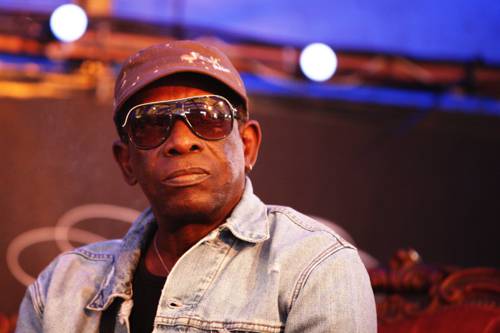
FAQ About The Influence of Afrobeat on Contemporary Music

What is Afrobeat?
Afrobeat is a music genre that combines elements of West African musical styles such as highlife and traditional Yoruba music with American jazz, funk, and soul influences. It was developed in the 1960s and 70s by Nigerian musician Fela Kuti, who used the genre to address political and social issues. The music is characterized by its energetic rhythms, complex percussion, and vibrant horn sections.

Who is considered the pioneer of Afrobeat?
The pioneer of Afrobeat is widely acknowledged to be Fela Kuti, a Nigerian multi-instrumentalist, composer, and bandleader. During the late 1960s, he created a unique sound by blending traditional African music with jazz and funk, and also used his music as a platform for social and political activism.

How has Afrobeat influenced contemporary music?
Afrobeat has had a significant impact on contemporary music through its distinctive rhythms and social messages. Musicians across various genres, including pop, hip-hop, and electronic music, have incorporated Afrobeat's polyrhythms and instrumentation into their work. Additionally, many artists are inspired by Fela Kuti's legacy of using music as a tool for political storytelling.

Which contemporary artists have been influenced by Afrobeat?
Contemporary artists such as Beyoncé, Drake, Wizkid, and Burna Boy have all drawn inspiration from Afrobeat. Beyoncé's album "The Lion King: The Gift" features Afrobeat influences, and collaborations with artists like Wizkid showcase the genre's widespread appeal. Burna Boy, often referred to as the "African Giant," has been instrumental in bringing Afrobeat to a global audience with his modern twist on the genre.

What are some key characteristics of Afrobeat music?
Key characteristics of Afrobeat include its use of complex polyrhythms, a strong emphasis on percussion, extensive instrumental sections, and socially conscious lyrics. The genre often features a blend of traditional African instruments such as the talking drum or shekere with Western instruments like saxophones and guitars.

How does Afrobeat differ from Afrobeats?
While both terms are similar, Afrobeat and Afrobeats refer to different styles. Afrobeat, pioneered by Fela Kuti, is a genre known for its fusion of jazz, funk, and traditional African music with political themes. In contrast, Afrobeats is a modern genre that emerged from West African pop and includes a mix of electronic dance music, hip-hop, and highlife, often focusing on themes of love and lifestyle.

What role do social and political themes play in Afrobeat music?
Social and political themes are central to Afrobeat music. Fela Kuti, the genre's pioneer, used his music as a tool for social commentary and political activism. His songs often addressed issues such as governmental corruption, human rights abuses, and colonialism in Africa. This tradition continues as contemporary artists use Afrobeat to explore and comment on current social and political issues.

How has Afrobeat music evolved over the years?
Afrobeat music has evolved by incorporating elements from various musical genres and responding to technological advancements. Initially rooted in jazz and funk, Afrobeat has merged with electronic music, reggae, and hip-hop, leading to the development of sub-genres and fusion styles. This evolution is also marked by global collaborations and the increased digital distribution of music, which has helped Afrobeat reach a wider audience.

What instruments are commonly used in Afrobeat music?
Afrobeat music commonly features a mix of traditional African and Western instruments. Key instruments include the saxophone, trumpet, trombone, electric guitar, bass guitar, drum kit, congas, shekere, and various African drums such as the talking drum. These instruments contribute to the genre's complex rhythmic patterns and energetic sound.

How do Afrobeat rhythms differ from other music genres?
Afrobeat is distinguished by its intricate polyrhythms, drawing heavily on traditional African rhythmic structures. Unlike the more straightforward 4/4 time signatures commonly used in Western music, Afrobeat often layers multiple rhythmic patterns, creating a rich tapestry of sound. This complexity allows for dynamic and danceable music that is both engaging and hypnotic.

What is Fela Kuti's legacy in the Afrobeat genre?
Fela Kuti's legacy in the Afrobeat genre is monumental. He is celebrated not only for his musical innovation but also for using music as a tool for social change. His fearless activism against corruption and injustice in Nigeria inspired many, and his musical style has influenced countless musicians worldwide. Fela's legacy continues through annual events like Felabration, which celebrates his life and music.

What are some well-known Afrobeat songs?
Some well-known Afrobeat songs include "Zombie," "Water No Get Enemy," and "Shakara" by Fela Kuti. These songs not only showcase the genre's signature sound but also reflect Fela's commitment to addressing social and political issues. His music continues to resonate with audiences around the world, maintaining its relevance and appeal.

Is Afrobeat popular outside of Africa?
Yes, Afrobeat has gained popularity outside of Africa, particularly in North America and Europe. The genre's infectious rhythms and global collaborations have attracted diverse audiences, and artists like Burna Boy and Wizkid have expanded its reach with international tours and collaborations with Western artists. Festivals and events celebrating Afrobeat further highlight its growing global influence.

What is the difference between Afrobeat and highlife music?
Afrobeat and highlife music, while related, have distinct characteristics. Highlife originated in Ghana and is known for its jazzy horns and guitar-based sound, often featuring upbeat, danceable rhythms. Afrobeat, on the other hand, developed in Nigeria, incorporating highlife elements with funk, jazz, and Afrocentric rhythms, and often includes social and political themes.

How do Afrobeat artists use their platform for activism?
Afrobeat artists often use their platform to address social injustices and political issues, continuing the tradition established by Fela Kuti. They engage in activism through their lyrics, public statements, and collaborations, raising awareness about matters such as inequality, corruption, and human rights. This activism helps foster dialogue and encourages positive change within communities.

Can anyone learn to play Afrobeat music?
Yes, anyone with an interest in Afrobeat can learn to play the music, though it may require dedication due to its complex rhythms and instrumental arrangements. Musicians typically benefit from studying its foundational genres like jazz, funk, and traditional African music, as well as practicing polyrhythms and ensemble playing. Many resources, including online tutorials, workshops, and music school programs, can aid in this learning process.

What role does dance play in Afrobeat culture?
Dance is a vital component of Afrobeat culture, often enhancing the music's energetic and communal atmosphere. Afrobeat's infectious rhythms naturally lend themselves to dance, with many songs intended to be performed alongside dancers. This physical expression provides an outlet for emotional and cultural storytelling, complementing the music's vibrant sound and social messages.

How does modern technology influence Afrobeat music production?
Modern technology has greatly influenced Afrobeat music production, allowing artists to experiment with electronic beats, digital recording, and global collaborations. Producers use software and digital instruments to create new sounds while staying true to Afrobeat's authentic rhythms. This technological advancement has broadened the genre's appeal, making it accessible to wider audiences through platforms like streaming services.

Are there any festivals dedicated to Afrobeat music?
Yes, there are several festivals dedicated to Afrobeat music, celebrating its history and influence. One of the most notable is Felabration, held annually in Nigeria to honor Fela Kuti's legacy. Other festivals, such as Afro Nation and the Afrobeat Festival, attract international audiences and feature a mix of Afrobeat and other African musical styles, showcasing the genre's global reach and cultural significance.

What is the global impact of Afrobeat today?
Afrobeat's global impact today is substantial, influencing a wide range of music genres and inspiring artists across the world. Its unique rhythms and socially conscious lyrics continue to resonate with audiences, while cross-genre collaborations help introduce Afrobeat to new listeners. The genre has also played a significant role in bringing African culture to the global stage, fostering greater appreciation and recognition within the international music community.
